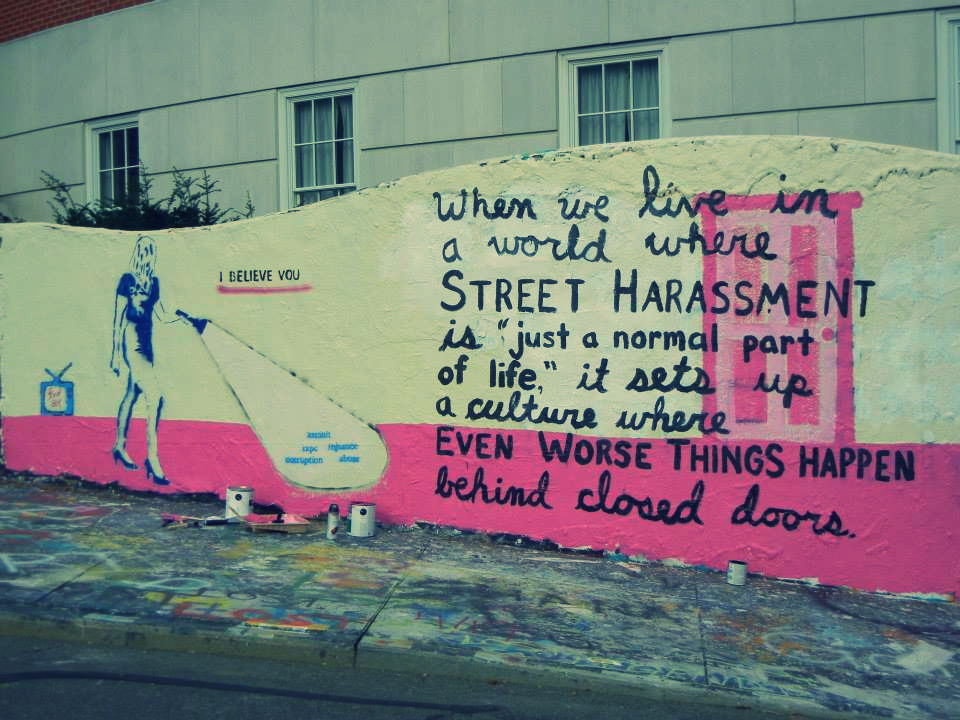Alicia Wallace, Nassau, The Bahamas, Blog Correspondent

In Part I, we explored street harassment and the resistance of Bahamians to respond to the evolution of society due to increased population and lived experience of women living in The Bahamas. I used the example of my first memory of street harassment which caused fear and shame. In Part II, we’ll delve into the differences between the Bahamian man’s experience and that of the Bahamian women. The Bahamian affinity for good manners will be weighed against the safety – if only by perception – of Bahamian women.
Bahamian men move through life with a tremendous amount of unrecognized privilege. They are concerned about their egos, manners and courtesies extended to them, and the subsequent feelings they inspire. They are unaware of – or simply unmoved by – the perpetual fear plaguing women simply for existing in a world where men dominate in the physical sphere. They are unfamiliar with a woman’s thought process as she approaches them, or any area where they could be lurking.
What am I wearing?
Can I run in these shoes?
Is he looking at me?
Where are my keys?
Place keys between my fingers.
Swivel safeguard on mace and place index finger on the trigger.
Dial someone’s cellphone number and keep thumb near the call button.
Do not drop any of these essential tools.
Look behind without looking like I’m looking behind.
Shoulders back, head up, eyes looking every which way.
Walk quickly – don’t run – and only on balls of feet so no one hears heels clicking.
Clutch bag tightly, but be prepared to toss it at any minute.
Get in the car quickly, lock all the doors, and start the engine. Don’t worry about the things in your lap right now.
Drive like hell.
Breathe.
Develop the plan for arrival.
Bahamian men are completely unable to reconcile their feelings and expectations of attention with the everyday lived experience of Bahamian women. They can’t begin to understand why any of this is necessary, and how it could even begin to excuse the outright refusal of women to give freely of their time and conversation. They’re steeped in their own experiences.
Bahamians are friendly people.
This is a small place.
My grammy taught me to speak to people when I see them. Anything different is just rude.
Bahamian women are too stuck up.
They don’t want no black man, and they don’t want no Bahamian man.
They think they’re too good for us.
They don’t appreciate how nice we are. We just want to say hello. Give them compliments.
Bahamian women look good! What’s so bad about that?
It’s easy for men to touch fists with other men, known or unknown to them. It’s not at all difficult to give a head nod or an “Erryting cool” to a man they’ve never seen before. They don’t have to know each other to be cordial. There’s a reason for this, but they don’t see it.
What’s the difference?
Power. It all boils down to the power differential. Between men, the playing field is fairly level. They generally have the same strength and abilities, neither holding any more power to cause harm to the other. A man can be relatively certain that another man saying “Sup?” is doing nothing more than acknowledging his existence and the exchange will end at will.
In the case of a man and a woman, there is an imbalance of power due to biological differences. Generally speaking, women can be overpowered by men. Women can be violently assaulted by men. A woman has no idea where an exchange can lead, and has little power to stop it. For this reason, many women choose not to engage at all.
Bahamian men fail to understand that this is not an affront to good manners or common courtesy. It’s survival.
The issue cannot be framed by the person in the position of power based on his own intent. That intent, however noble, is not apparent to the person with the least amount of power. All a Bahamian woman can tell you for certain is how it makes her feel when she is catcalled, followed, or otherwise greeted, and this is, in fact, what truly matters. The impact is of greater consequence than the intent.
It’s not the job of a woman to consider the feelings of a strange man she fears could wrestle her to the ground, drag her by her hair, and sexually assault her. Rather, it is the responsibility of a man to consider the way he is perceived, control his reaction to being ignored, and modify his behavior. If he is truly concerned about good manners and common courtesy, the Bahamian man will understand the position of the Bahamian woman, and he will act accordingly.
Good manners may make you feel good, but behaving in ways that minimize fear and increase access to public space for women should make you feel better. At the end of the day, it’s not about you, Bahamian man. It’s about the impact you have on the Bahamian women you claim you love, honor, and respect.
Alicia is a freelance writer and public educator in Nassau, Bahamas. You can connect with her on Twitter (@_AliciaAudrey and on her blog.
